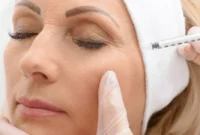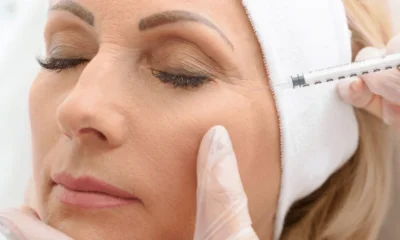
Are We Drinking More as a Result of Lockdowns?
According to recent research published in the UK, there is a very high correlation between increased drinking and the lockdown brought by the COVID-19 pandemic. While many look for alcohol treatment in the UK, consumption keeps rising during the lockdown, say addiction experts from https://www.substancerehabilitation.com/alcohol-rehab/
Let’s dissect what alcoholism is, how the lockdown affected alcoholism, and what we can do about it.
What Is Alcoholism?
It is likely that at some point in your life, you may have tried alcohol. You may even enjoy regularly consuming alcohol, but neither of these conditions mean that you struggle with alcoholism. When an individual is addicted to alcohol, oftentimes to the point where their body is dependent on it, that is alcoholism.
Alcoholism pertains to the inability of an individual to control how much they drink, and/or when they drink. Medically, alcoholism is referred to as alcohol use disorder, and is divided into three main categories: severe, moderate, and mild.
An individual may be classified as struggling with alcoholism or alcohol use disorder when this addiction begins to take over their life, body, and mind.
The extent to which one is struggling is what the categories are for. If someone is not treated for their disorder, they might end up struggling more severely than they originally were.
Meaning, despite someone having mild alcoholism, if they do not go to rehab or receive treatment for their addiction, they may end up with moderate or severe alcoholism. If you or someone you know is struggling with alcohol use disorder, please reach out for help.
What Does The Data Show About Lockdowns?
Multiple studies show a very strong correlation between drinking more and the COVID-19 lockdown. A study from the University of Glasgow and the University of Sheffield shows that late-evening drinking increased when people were confined to their homes.
Furthermore, this study showed that solitary drinking in Scotland spiked more than in England. This could possibly be linked to more people living alone in Scotland than in England.
While one would expect daytime drinking to increase during lockdown, the opposite was noted. Dr. Stevely, one of the co-authors of the study, remarked that it is likely that evening drinking increased because bars and pubs were closed This led to people no longer having somewhere to socialise with their colleagues after work.
The same study also showed that buying alcohol from shops increased after the March 2020 lockdown. It remained elevated even when lockdown restrictions were loosened, perhaps due to the fear in the masses of contracting COVID-19.
In another study by Newcastle University, alcohol purchases were analysed. Shockingly, the purchases seemed to neither increase nor decrease during lockdown, after the deficit from pubs being closed had been balanced.
While this may seem puzzling, deeper analysis showed that alcohol purchases were not “stable,” but rather just affecting some people more than the rest.
Who Has Been Most Affected By Lockdowns, And How?
After deeper analysis, it was noted that people who previously bought a lot of alcohol were the ones that were the most affected by lockdowns, and their alcohol consumption considerably increased.
Households and individuals who did not buy a lot of alcohol before the lockdown continued the same way, with no extra alcohol bought during lockdown.
It was not a small difference. The disparity was stark and quite obvious. The households in the top-fifth consumers list before the pandemic were the ones facing an increase 17 times more (1700%) than the bottom-fifth consumers before the pandemic. In simple words, individuals who already bought a lot of alcohol from shops were the ones at the greatest risk of harm and alcohol misuse.
The same study by Newcastle University also showed that geographically, some parts of Britain bought more alcohol than the rest, and thus were more affected by the lockdown.
Households and individuals from Yorkshire and the Humber, and north-east England, were the ones with the most increased alcohol purchases. People who were from deprived communities also saw an increase in alcohol consumption, as compared to people who were from affluent communities.
Is The Uk Looking To Tackle The Growing Problem Of Alcohol Addiction?
The UK faces the cost of anywhere between £21 billion to £52 billion each year due to the growing problem of alcohol addiction. Beyond monetary units, the rise in alcohol-related deaths is also an alarming loss for Britain.
According to official statistics, alcohol-related deaths saw the greatest increase since 2001 during the COVID-19 pandemic, as they rose a shocking 19%. Furthermore, new figures have shown that 8 million residents of England are now drinking so much alcohol to the point where it is harmful to their body.
As such, it is absolutely imperative for the United Kingdom to tackle the problem of alcohol addiction. According to local authorities, £623 million was spent on alcohol and drug treatment during the years 2019 and 2020.
This figure is only about a fifth of the entire public health grant issued for that particular time period. While the UK can be seen trying to tackle this problem, it can arguably still do more than it already is.
What Is The Impact Of Alcoholism On The Nhs?
The NHS routinely sees people with alcoholism coming to them for help. While this sounds positive if one thinks about how people are reaching out, in practice the NHS is not fully equipped to deal with the amount of people who need help. According to research done by the University of Cambridge, alcohol misuse costs the NHS approximately £3.5 billion per year.
While the NHS is trying to combat the problem of alcoholism, it is unfortunately not funded well enough to properly deal with alcoholism. Another report by the House of Commons states that alcohol costs the NHS approximately £2.7 billion per year, and all the other services are impacted too. Liver disease, a common symptom of alcohol misuse, is increasing in the UK. More than 863 thousand people are admitted to hospitals each year for problems pertaining to alcohol misuse.
Summary
The connection between drinking more and lockdowns being imposed in the UK is quite jarring.
- Alcoholism is the condition wherein an individual is addicted to alcohol consumption and is unable to control the amount of alcohol they are consuming. Alcoholism may be mild, moderate, or severe, depending on the circumstances.
- Data regarding lockdowns shows a direct relation between the increase in the amount of alcohol consumed and the imposition of a lockdown in the UK. Households consumed more alcohol during the evening, as shown by the data, perhaps as a way to make up for the closure of pubs.
- People who previously consumed a lot of alcohol were the ones most affected by the lockdown. They began to consume considerably more alcohol, as shown by data related to purchasing alcohol from shops. Deprived communities also suffered more than affluent ones did when it came to increased drinking during the lockdown.
- The problem of alcohol addiction has considerably increased, including the amount of deaths due to alcohol misuse. The UK is tackling this by trying to increase the amount of support available, and broadening treatment options.
- Alcohol misuse costs the UK anywhere between £21 billion to £52 billion, and the NHS £3.5 billion each year. Besides monetary costs, the impact of alcoholism on the NHS and the UK is irredeemable, and thus alcoholism must be controlled at all costs.
If you or someone you know has been affected by the lockdown or is struggling with alcohol misuse, know that help is available, and they can reach out.
Related posts:


Forex & Crypto
5 Best Ways to Earn Crypto While You Sleep in 2025
Categories
- Apps (1)
- Automotive (23)
- Beauty (7)
- Business (122)
- Celebrities (2)
- Digital Marketing (21)
- Ecommerce (2)
- Education (22)
- Entertainment (39)
- Events (6)
- Fashion (1)
- Features (4)
- Finance (1)
- Fitness (10)
- Food (2)
- Forex & Crypto (23)
- General (116)
- Health (48)
- House (61)
- Lifestyle (57)
- Marketing (8)
- Parenting (3)
- Pets (10)
- Real Estate (8)
- Safety and Security (14)
- Social Media (31)
- Sports (141)
- Technology (73)
- Travel (23)





















